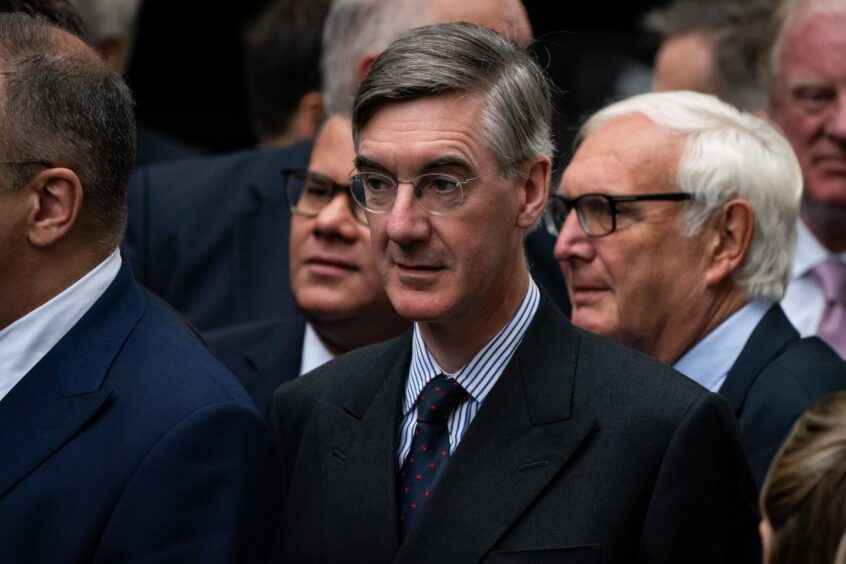
Boris Johnson’s flagship energy bill faces significant change or being scrapped altogether as Liz Truss focuses efforts on lowering household energy costs, according to reports this week.
Newly appointed Secretary of State for Business, Energy and Industrial Strategy (BEIS) Jacob Rees-Mogg reportedly told officials earlier this week that the Energy Bill will be effectively put on hold, the UK’s i newspaper said, citing multiple sources.
Unveiled by Boris Johnson’s government in April and described as the “biggest reform” of its kind in a decade, the legislation covered sweeping changes to energy production, security and regulation of the energy market, including provisions for carbon capture and storage (CCS), hydrogen and decommissioning.
Alongside new oil and gas licensing, the overarching British Energy Security Strategy would see an expansion of nuclear, offshore wind and hydrogen to ensure 95% of UK electricity is low carbon by 2030 and deliver “40,000 more jobs in clean industries” within that timeframe.
Crucially it also called for the establishment of a new, independent “Future System Operator” which would take a whole-system approach to UK energy – vital in evaluating how and where to deploy key energy transition technologies such as CCS, hydrogen and offshore electrification.
The bill is currently making its way through the House of Lords. Having undergone two readings, it is now at the committee stage.
However, reports suggest Downing Street will park the bill, instead prioritising more immediate action to lower consumer bills and reform the UK’s electricity market.
The i reports that Ms Truss is keen to press for two major reforms: changing pricing mechanisms to decouple the cost of electricity from global gas prices, and a move towards nodal pricing, where the cost of electricity is affected by locational signals such as demand and transmission infrastructure.
These measures, among many others, were mooted in the Review of Electricity Market Arrangements (REMA) consultation launched in July.
Initially slated to receive a formal response this winter, this week’s reports suggest the government may fast-track the implementation of such reforms.
Meanwhile Mr Rees-Mogg also plans to expand energy supplies, with a source telling the paper: “He wants to go full throttle on the best prospects for renewable… offshore wind will be the biggest focus but supply needs to be increased everywhere.”
Yet abandoning some or all of the bill means other important decarbonisation targets and reforms may fall by the wayside.
Daniel Newport, head of net zero for the Tony Blair Institute for Global Change and formerly of BEIS, noted that he couldn’t see “any feasible way” the government could hit its legally binding carbon budgets in 2030s without the bill going ahead.
Mulling this over this morning, I can’t see any feasible way govt can hit its legally binding carbon budgets in 2030s without this bill going ahead.
Leaves them with no real levers for heat, ccs or hydrogen.
That’s a huge chunk of required savings with no viable alternatives. https://t.co/gKxnCTuztS
— Daniel Newport (@danielrportis) September 15, 2022
Dr Doug Parr, policy director for Greenpeace UK also stated that while the bill was not perfect, ministers should not “throw away the baby with the bath water.”
“By now, most people agree that our broken energy market needs fixing, and this bill is a good opportunity to do so. It already includes measures to drive up heat pump installations, which is key to protecting households from spiralling gas prices and cutting climate-wrecking emissions. And ministers could use the bill to bring in new standards to improve our energy-wasting homes and bring down bills whilst removing the absurd barriers blocking solar and wind, the cheapest energy sources we have.
“This provides the long-term solution to our energy woes the prime minister is looking for, not fracking or more drilling in the North Sea.”
Mr Rees-Mogg’s apparent change of tack comes as all government departments review their upcoming laws following the appointment of PM Truss, although the i reports there will be no further announcements until the end of the national mourning period following the death of the Queen.
BEIS said it would not speculate on the content of future bills.
Recommended for you
